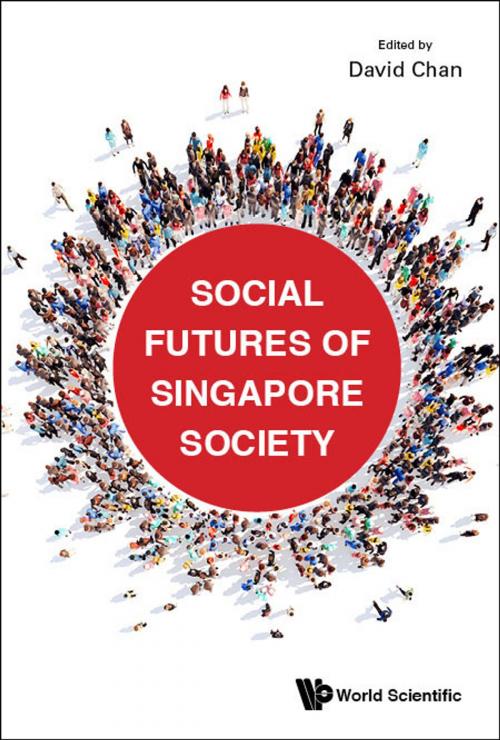Social Futures of Singapore Society
Nonfiction, Social & Cultural Studies, Social Science, Sociology| Author: | David Chan | ISBN: | 9789813222243 |
| Publisher: | World Scientific Publishing Company | Publication: | July 14, 2017 |
| Imprint: | WSPC | Language: | English |
| Author: | David Chan |
| ISBN: | 9789813222243 |
| Publisher: | World Scientific Publishing Company |
| Publication: | July 14, 2017 |
| Imprint: | WSPC |
| Language: | English |
After celebrating 50 years of independence, Singapore is focused on the question of what the future may bring. The future is neither predetermined nor random. How the chapter turns out will be affected by many economic and social forces, but much will also depend on how Singapore and Singaporeans choose to contribute to it.
Singapore is likely to do well if important unresolved issues can be identified and addressed, especially those that require some mindset changes in individuals, the community and the government. Several questions have become more salient in recent years as Singapore society underwent significant changes. What does the future hold for Singapore society? Can people in Singapore really respect and embrace diversity of views and mindsets for a better society? How can the nation develop a diversity that enhances innovation, addresses issues, maintains social cohesion and contributes to people's well-being? What are some ways to build social-psychological capital in individuals and communities to develop a strong society that is resilient to shocks, failures and unmet expectations? Is it possible to move from a society where the role of government is dominant in many areas to one where individuals and communities step up to co-create whole-of-society solutions?
This book, based on the proceedings at the Behavioural Sciences Institute Conference 2016, explores these and other issues about the social futures of Singapore. The book is organized into four parts. Part I provides an overview of issues involved in thinking about the social futures of Singapore society. Part II examines social futures from the perspectives of healthcare and education. Part III analyses the relationships linking social futures to the notion of giving and the increasing influence of social media. Part IV addresses specific questions on social futures of Singapore society in terms of social and national identities, cultural values, relationship between economic development and environmental sustainability, religious consciousness, perceptions of political leaders, and relationships between people and government.
After celebrating 50 years of independence, Singapore is focused on the question of what the future may bring. The future is neither predetermined nor random. How the chapter turns out will be affected by many economic and social forces, but much will also depend on how Singapore and Singaporeans choose to contribute to it.
Singapore is likely to do well if important unresolved issues can be identified and addressed, especially those that require some mindset changes in individuals, the community and the government. Several questions have become more salient in recent years as Singapore society underwent significant changes. What does the future hold for Singapore society? Can people in Singapore really respect and embrace diversity of views and mindsets for a better society? How can the nation develop a diversity that enhances innovation, addresses issues, maintains social cohesion and contributes to people's well-being? What are some ways to build social-psychological capital in individuals and communities to develop a strong society that is resilient to shocks, failures and unmet expectations? Is it possible to move from a society where the role of government is dominant in many areas to one where individuals and communities step up to co-create whole-of-society solutions?
This book, based on the proceedings at the Behavioural Sciences Institute Conference 2016, explores these and other issues about the social futures of Singapore. The book is organized into four parts. Part I provides an overview of issues involved in thinking about the social futures of Singapore society. Part II examines social futures from the perspectives of healthcare and education. Part III analyses the relationships linking social futures to the notion of giving and the increasing influence of social media. Part IV addresses specific questions on social futures of Singapore society in terms of social and national identities, cultural values, relationship between economic development and environmental sustainability, religious consciousness, perceptions of political leaders, and relationships between people and government.















